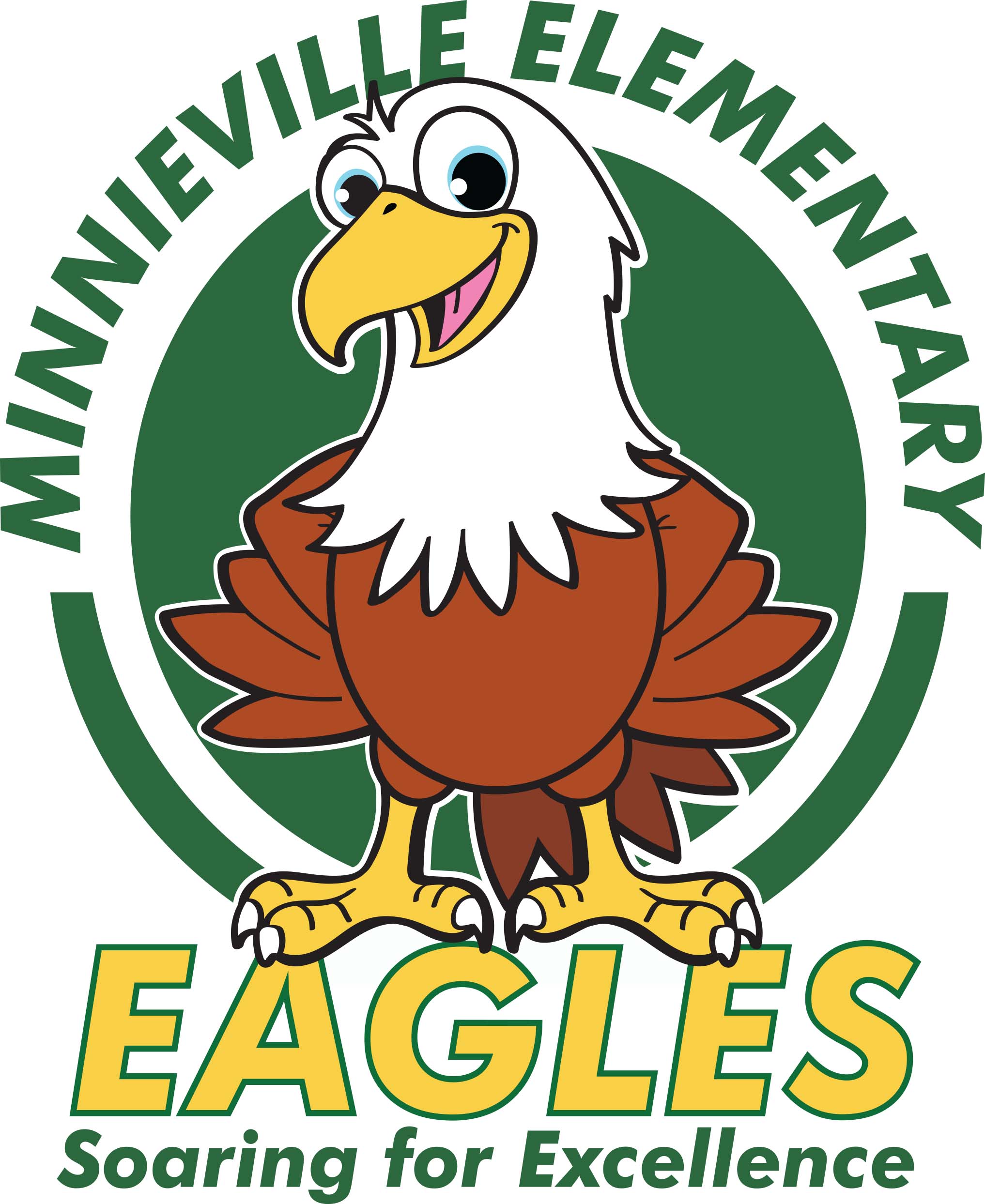Minnieville PLC Framework
The
Professional
Learning
Community
framework
is
a
process
in
which
educators
collaborate
in
recurring
cycles
of
collective
inquiry
and
action
research
to
achieve
better
results
for
the
students
they
serve.
Professional
Learning
Communities
operate
under
the
assumption
that
the
key
to
improved
learning
for
students
is
continuous
job
embedded
learning
for
educators.
Dufour,
R.,
Dufour,
R.,
Eaker,
R.,
&
Many,
T.,
(2006).
Learning
by
Doing:
A
Handbook
for
Professional
Learning
Communities
at
Work
TM,
pp.2-4
Minnieville PLC Structures
Monitoring student learning on a timely basis.
As a school, Minnieville has implemented effective strategies for monitoring student learning on a timely basis. For general instruction, all grade-level teams utilize the PLC process with a standards-based team unit planning document. Before each unit-of-study teams examine the state learning objectives and pull out essential objectives that will be mastered. Essential vocabulary for the unit is also documented. Teams then co-create or revise a common formative assessment to be administered at the end of the unit. A SMART goal is created for the unit, and additional quizzes and assessments are discussed and created that will effectively monitor the learning objectives. Opportunities for support from ESOL and ENCORE teachers (e.g., art, music, computer, and PE) are also discussed as well as administrative support for the unit. Teachers then discuss, share, and document instructional strategies that can be used in the teaching of the unit. This plan is continuously shared and revised throughout the teaching of the unit. Next, the common formative assessment is given, and the results are discussed with the teachers and administration. Pass averages and pass rates are discussed as well as subgroup data (e.g., white, black, SPED, Hispanic, and ESOL). Teams then discuss whether or not their SMART goal was reached. Strategies for the students who did not meet the benchmark are discussed as well as a plan to deliver them remediation for the unit. Extension opportunities are also discussed for students who continuously meet or surpass the benchmark as well. This system is done for every unit in every subject area in every grade.
Creating systems of intervention to provide students with additional time and support for learning.
Minnieville has worked hard to implement a system of tiered interventions for both academic and behavior concerns and has also looked for creative ways to schedule effective time for enhanced classroom instruction. Each student's academic and behavioral data is monitored through a classroom yearlong data spreadsheet. Student data containing reading instructional levels, math levels, ESOL levels, writing levels, behavior levels, and overall instructional averages are updated and monitored through monthly intervention meetings with the administration and support specialists. If a child has consecutively fallen behind the grade-level expectations for 4 to 6 weeks, an intervention is allotted to that student. Those interventions (Tier 2) are in the form of additional guided reading or guided math support, after-school tutoring, vocabulary/phonics support, guidance support, or additional ESOL support. These supports are given in addition to the classroom instruction and are monitored. If the child continues to not meet the grade-level expectations, then further (Tier 3) supports are given. These daily supports are also given in addition to the classroom instruction. Tier 3 supports include specific research-based interventions given by a specialist. All progress from the students receiving interventions is done monthly and shared with the students' families.
Building teacher capacity to work as members of high performing collaborative teams that focus efforts on improved learning for all students.
Professional learning community teams are an essential aspect in every area of Minnieville teams. In addition to grade-level PLC teams, the school also organizes its ESOL teachers, SPED teachers, and ENCORE teachers (e.g., art, music, PE, library, and technology) into collaborative teams as well. Effective schoolwide discipline teams, math teams, language arts teams, science/social studies teams, and community Involvement teams operate as well. Each team has its own SMART goal(s) that address areas of need, and specific plans and strategies are delivered and monitored to assess the effectiveness of the team's efforts. In addition to these teams, the administration also meets monthly with its leadership team and its parent advisory team to share schoolwide data, monitor budgetary uses, and discuss schoolwide concerns and needs.

